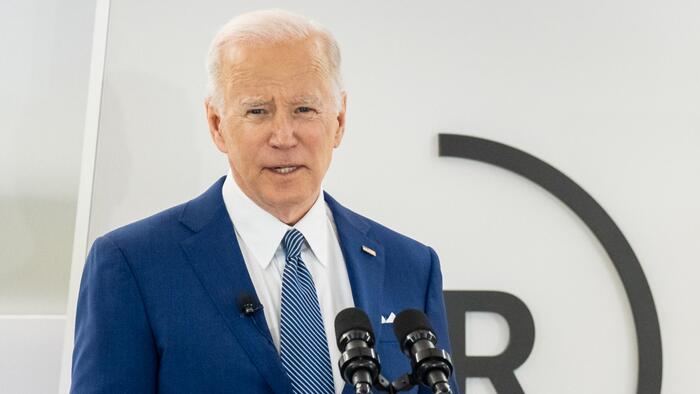


Authored by Gary Abernathy via The Empowerment Alliance,
The “One Big Beautiful Bill” – designed to put most of President Trump’s campaign promises into action – squeaked through the House of Representatives on May 22 and was immediately greeted by expressions of horror from activists and corporations invested in so-called “alternative” energy.
The big business interests that drive the solar and wind boom have for years operated at a huge advantage. Most startups historically identify a need and create a quality product or service to meet the demand in the hope of becoming profitable within a few years. By contrast, the “renewables” industry has had the backing of the United States government in the form of tax incentives designed to virtually guarantee success. Even with so much government largesse, it’s astounding how many solar companies have been so badly managed that they have gone out of business.
Still, with Uncle Sam cheering them on, solar companies have converted more than a million acres of cropland and pastures to unsightly collections of solar panels. The rapid deployment often stirred controversy, pitted neighbor against neighbor, and sent state lawmakers scurrying to craft new and evolving rules and regulations.
Many people viewed the encroachment of solar as a blight on generational farmland, as ugly glass and metal panels replaced corn, soybean, wheat and other crops. Some landowners, though, eagerly grabbed the lifeline offered by solar companies in the form of per-acre sale or lease prices that were far above average market values, in many cases allowing them to escape mountains of farming debt.
As I wrote in a Washington Post column a few short years ago about a public hearing I attended on the topic of solar developments in southern Ohio, “The testimony was sometimes heart-wrenching. Some members of multigenerational farm families who have made deals with the solar companies spoke with tears in their eyes. Farming is in their blood, and in a perfect world they would continue the family tradition. But for them, it’s been a long time since the world was perfect.”
The kicker, of course, is that solar companies were able to offer such lucrative deals almost entirely because of subsidies and tax incentives offered by the Obama administration, curtailed somewhat by the first Trump administration, but reinvigorated on steroids by the Biden administration’s misleadingly named Inflation Reduction Act.
In a follow-up Post column in 2021, I noted that suspicions about the solar installations were increasing. “Questions are growing about neighboring property values and environmental issues,” I wrote. “What about responsible land practices such as plant maintenance, erosion protection and water runoff? When the solar fields are dismantled someday, will the soil be safe for reuse? Solar companies are providing answers, but trust is not always evident.”
For solar, the return of Trump and GOP congressional control means the gravy train might be rolling to a stop. The budget passed by the House ended many tax credits for companies installing rooftop solar panels, but, more importantly, the bill “also ends the investment and electricity production credits for clean energy facilities that begin construction 60 days after the legislation is enacted or enter service after Dec. 31, 2028. Those credits have played a key role in the rapid expansion of utility-scale solar projects in the U.S.,” as CNBC reported. Solar stocks immediately plunged.
But political considerations are always in play, and it’s telling that the House budget bill “left the manufacturing tax credit relatively unscathed.” That’s almost certainly because of the fact that domestic solar component manufacturing is well underway, including in many red states where members of Congress aren’t anxious to pull the plug on jobs that benefit local communities – even if they are based on the artificial tax subsidies from a government picking winners and losers.
When it comes to energy, the House bill will likely see some revisions in the Senate. Sen. Thom Tillis (R-N.C.) was probably smart, politically, when he said he would push for a slower phase-out of clean energy subsidies.
“For companies that have made major capital deployment decisions, we need to respect that or people are going to start thinking that the United States has massive changes in policy every two years in this space, and that will be devastating to the U.S.’s current position as the innovation leader,” Tillis said.
As Doc Holliday said in the movie “Tombstone,” that’s the damnable misery of it. Subsidies have backed the manufacture of solar initiatives in state after state, so while there are endless unknowns about the future, jobs are here now, at least in the short term. Abruptly shutting them down would give Democrats an election issue that a slow phaseout might help to avoid, or at least alleviate.
An “all-of-the-above” approach to energy is a popular political slogan, and indeed, alternatives will continue to be part of our energy mix. But recent blackouts, brownouts and general grid failures around the world due to an overreliance on solar demonstrate that the various resources that make up “all of the above” are not created equal. They do not generate equal energy, or give consumers the same dollar-for-dollar value.
The success of “alternatives” should be based on merit. Are they affordable? Are they effective? Are they reliable? Are they in demand? Our system of capitalism decides winners and losers. When government bureaucrats try to make those calls, taxpayers end up footing inflated bills for inferior products. That outcome should be an alternative no one supports.
Gary Abernathy is a longtime newspaper editor, reporter and columnist. He was a contributing columnist for the Washington Post from 2017-2023 and a frequent guest analyst across numerous media platforms. He is a contributing columnist for The Empowerment Alliance, which advocates for realistic approaches to energy consumption and environmental conservation. Abernathy’s “TEA Takes” column will be published every Wednesday and delivered to your inbox!
